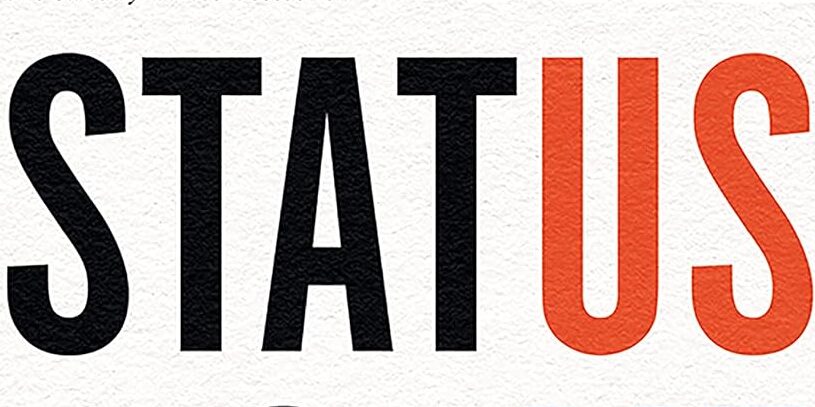Will Storr – The Status Game (2021)
Het uitgangspunt is dat de mensheid en de samenleving (grotendeels) zijn gevormd door het spel dat door iedereen gespeeld moet worden (i.e., het verkrijgen van ‘status/aanzien’). Dit spel zal aannemelijk nog wel even voortduren. Zeer interessant. Dat de auteur een begenadigd verhalenverteller is, maakt het daarnaast ook nog eens leuk om te lezen.

Our reward systems are activated most when we achieve relative rather than absolute rewards; we’re designed to feel best not when we get more, but when we get more than those around us
Seven rules of play are thought to be universal:
- help your family
- help your group
- return favors
- be brave
- defer to superiors
- divide resources fairly
- respect others’ property
Prestige games are symbolic. They’re played with our reputation. To tell these stories, speech evolved – to gossip.
A person’s status is commonly expressed in their capacity to influence: they ‘tend to be more prominent in group discussions, to make their opinions known and their suggestions clear, and to articulate the consensus once it is determined’
When people have an outburst over something trivial – an unanswered question, a tiny debt, a perceived lack of gratitude, a minor discourtesy on the road – the often justify themselves by saying it’s about the ‘principle’ of the matter. What they mean is that ‘the other party has arrogated to a dominant role’.
A predictable precursor to societal collapse is ‘elite-overproduction’ – when too many elite players are produced and have to fight over too few high-status positions. It leads to resentful cadres of failed elites forming their own status games, attacking the establishment, contributing to its destabilization.
We can’t be expected to test for ourselves every fact on which we have to rely, so instead we look upwards for guidance. We have faith. We believe. And sometimes we end up believing crazy things.
Once individuals start to play and begin to enjoy a game’s rewards, it becomes part of their identity. They come to rely on it, to defend it, to evangelize it. And so the game becomes self-supporting, self-reinforcing, as each individual player now requires it to be real and true in order for their status to be real and true.
Gentlemen thinkers, known as ‘virtuosi’, wrote books on all kinds of subjects. Their success-play was founded on a love of knowledge for its own sake. The virtuosi ‘turned curiosity, once regarded as a vice, into a virtue’. Showing knowledge became a status symbol.
